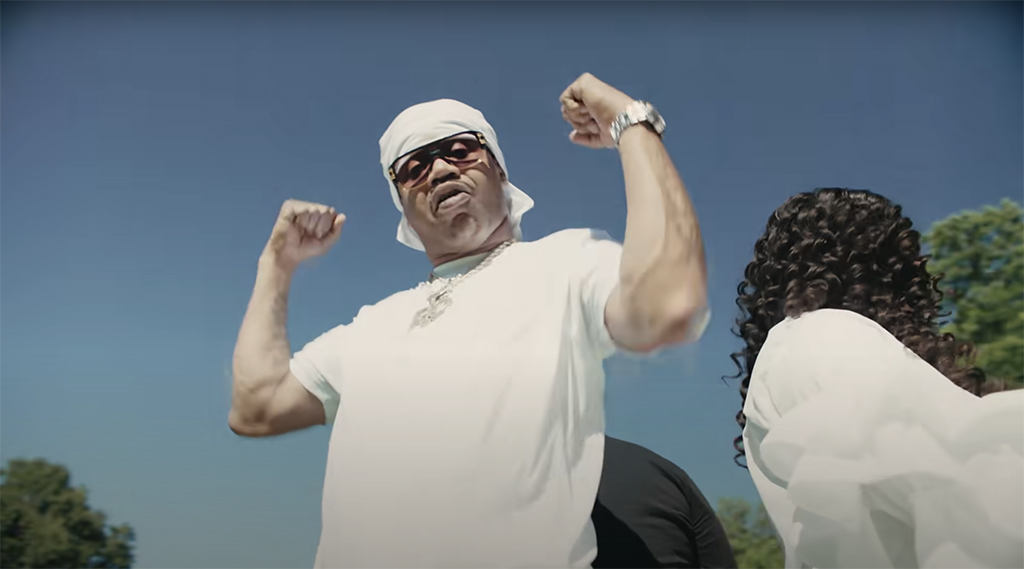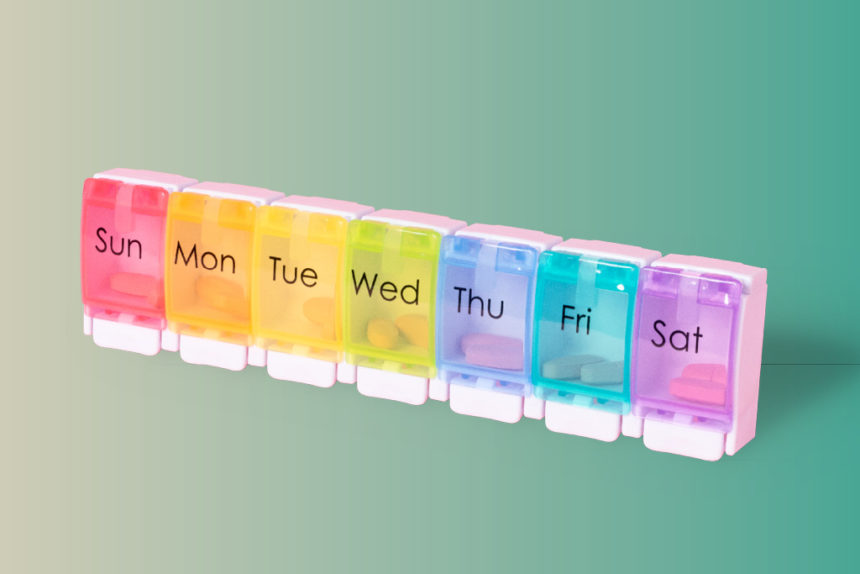A remake by a ‘90s-era hip hop legend has underscored a conflict over how best to address healthcare in the Black community.
The video might be described as lighthearted yet suggestive, in a way that makes sense given that the client is dating app BLK. It features rap legend Juvenile reinventing his late-’90s classic “Back That Thang Up” as “Vax That Thang Up.”
Launched on YouTube this month, the pandemic remix has racked up more than 3.1 million views, and generated over 3 billion media impressions on its first day alone. While it has garnered its share of praise, there’s been criticism as well, some of it stemming from the Black advertising world.
Derek Walker, owner of South Carolina agency Brown and Browner, acknowledges he’s not in the target demographic for “Vax That Thang Up.” Nevertheless, Walker said he found the video troubling because of its visuals and depictions of women.
“I’m torn,” he explained. “It’s not the best representation of the target audience. But I understand it’s kind of like watching a Tyler Perry movie. Not everyone in the Black community likes Tyler Perry movies, but there is an audience for them.
“Would I have done this ad? No. Do I think it does damage overall? Yes.”
To understand why the video might have unwanted side effects, it’s important to understand that the ad industry at large, and most brands, are in the early stages of becoming more socially and racially conscious. Some of this year’s Lions Health winners, for instance, touched on diversity themes, including “The Call.” The campaign, by EmpowerHer NY and The Bloc, won Best in Show at last year’s MM+M Awards for the way it tackles unconscious racial bias.

But most agree the industry has a long way to go. Stereotypes, for one, remain an issue. When people of color are featured in commercials, they’re often portrayed in the form of athletes, performers or other tropes, rather than in roles that show they’re just like other people.
Meanwhile, in order to reach the unvaccinated, COVID-19 pro-vax efforts are becoming more and more tailored to specific audiences. Another recent video, “One Decision for Us,” by VaynerMedia for The William Julius Wilson Institute at Harlem Children’s Zone, appeals to Black and Hispanic communities through spoken word artist Justice Davis.
In the case of “Vax That Thang Up,” the target audience is Black adults under 40. (BLK noted that this segment is the most likely to avoid getting vaccines against COVID-19, citing U.S. Census Bureau data.) Its 15,000 likes suggests that the video does a good job of reaching that audience. It’s similarly clear that many people like the remix of the song, which reached the Billboard Top 20 in 1998.
In a statement Juvenile gave to Rolling Stone, he said, “I just wanted to do something positive for my people and to stand in the front to show that I’m willing to sacrifice my life not just for me but also for my family. We don’t know what we’re facing right now but we really do all need to be vaccinated so we can continue to do our thing and survive.”
But then there are the 19,000 dislikes. Some people were offended by the video’s depiction of women, which is stereotypical at best and degrading at worst. It’s those kinds of tropes that, Black creatives say, they’re trying to get the industry to move beyond.
“My fear is that, come the next awards cycle, we will give this an award because it fits the stereotypes. It fits the comfortable part of seeing Black people dance,” Walker explained. “It will be lauded over as great because it’s the stuff everybody wants to do: To make a rap video.”
The ramifications of that worry him.
“I don’t want white creatives and white agencies saying, ‘Well that’s what we’ll do, and that’s how to reach Black people,’” Walker continued. “No, you need to understand there’s a conflict even in the Black community over this. This isn’t something you can go pick up and do yourself.”
That’s the “tightrope” Walker believes creatives must keep in mind. Even when making an ad aimed at an audience that needs to be reached – younger Black people who have yet to receive the vaccine – some restraint is called for in the execution.
“We’re not a monolith as a community,” Walker said. “Is that video going to reach a certain segment? Yes. Does that segment need to be reached? Yes. Does it offend another segment of African American and Blacks in America? Yes.”
Vaccine hesitancy is a sensitive topic within the Black community, given that it often stems from trust shaken generations ago due to the Tuskegee medical experiments. Juvenile subsequently appeared on CNN to address that aspect of the video’s backlash.
Viewed in the overall context of pro-vax marketing efforts, the video follows educational initiatives like those of the Ad Council’s “It’s Up To You,” which encourages the public to receive the shot so that they can get back to holding hands, hugging and hanging out at family gatherings.
BLK goes a step further, stating that “dating is better in all the ways once you’re vaccinated.” But paired with the video’s suggestive visuals, that message has the potential to go sideways.
Indeed, agencies creating multicultural work need to be cognizant of the potential to offend as their ads become more culturally tailored. “It’s just the nature of this beast,” said Walker. “It’s our job.”
The yin-yang response speaks to the selective appeal – and danger – of advertising. Marketers can’t ignore that on a larger scale; there are implications they may not realize but that can do harm.
Ad agencies help grow and push culture which, oftentimes, is created by people of color. So it’s important that people of color are in the agency conference rooms pushing those narratives. But when they are, they must realize that with this influence comes responsibility to anticipate the impact of their recommendations, not only on the general public but on advertising as a whole.
“Other agencies should not consider this a blueprint for reaching Black audiences,” cautioned Walker. “This is not carte blanche for white agencies to do this; tread carefully.”
Atlanta multicultural agency Majority, which created the video, did not respond to a request for comment to this article.








